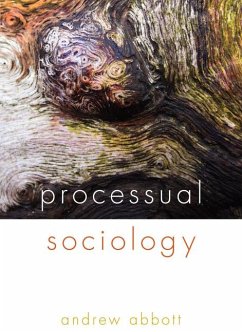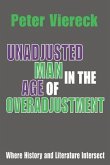Andrew Abbott has been, for the last 20 years, elaborating what he terms a processual ontology for social life. It dovetails with his quest to find ways for the disciplines of history and sociology to be able to talk about the same subject matter, i.e., as different versions of looking at the same thing By a processual approach, Abbott means an approach that presumes that everything in the social world is continuously in the process of making, remaking, and unmaking itself (and other things), instant by instant. A processual approach begins by theorizing the making and unmaking of individuals, social entities, cultural structures, patterns of conflict as the social process unfolds in time.. In a word, the processual approach is fundamentally, essentially historical. In Abbott's take on it, all the micro elements with which the other approaches begin are themselves macrostructures in the processual approach. Their stability is something to be explained, not presumed. This book, then, sets out positively what sociology should look like, both in terms of method and in terms of the "substance of the social." The opening two chapters invite us into Abbott's particular brand of thinking, providing a processual account of individuals in Chapter 1, and then, in Chapter 2, showing how this processual account would deal with the classic theoretical-philosophical problem of "human nature" as an aspect of social thought. Chapter 3 gives a concrete example of how the sociological vision set out in Chapters 1 and 2 could be turned into an empirical research program. Then, chapters 4 and 5 venture out into "theory" again--first to argue, in chapter 4, for sociologists not to give in to the explanatory impulse at every turn, and second, in chapter 5, to make the argument that the concept of excess should be as important to our analyses as scarcity is. This latter chapter takes the argument about excess into the welcome land of analytic precision after all of the poetic whimsy of Nietzsche and Bataille. Chapters 6 and 7 take us to a vision of the "so what" question, which Abbott answers in terms of what sociological knowledge can be for. They deal with the criteria for achieving a good social life. Overall, the book cumulatively builds up a "vision" of what processual sociology looks like.
Hinweis: Dieser Artikel kann nur an eine deutsche Lieferadresse ausgeliefert werden.
Hinweis: Dieser Artikel kann nur an eine deutsche Lieferadresse ausgeliefert werden.








